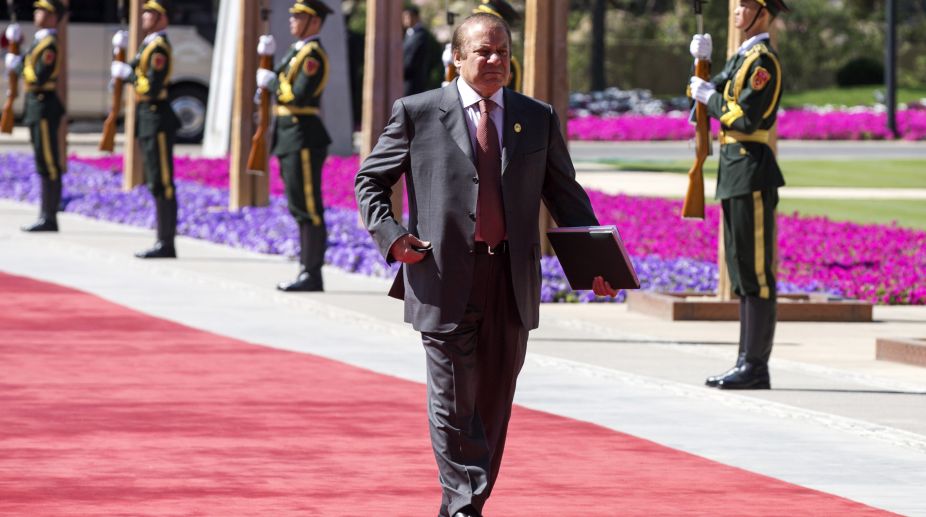Former Prime Minister Nawaz Sharif returned to Pakistan from London on Monday, a month after he went to the UK to be with his wife Kulsoom Nawaz, who is undergoing cancer treatment.
Sharif arrived at the Benazir Bhutto International Airport here at 7.30 a.m. where he was received by senior Pakistan Muslim League-Nawaz (PML-N) party leaders, Dawn news reported.
Advertisement
The ousted Prime Minister is expected to hold an informal meeting with the PML-N leadership for consultations on his appearance before the accountability court.
Speaking to the media before departing for Islamabad on Sunday night, Sharif said he came to London to inquire after the health of his wife.
In his remarks, Sharif continued to question the court’s decision to disqualify him.
“We did not commit any corruption. If this was about Panama (Papers), then why was I disqualified for holding an Iqama (work permit for UAE)?”
Expressing dissatisfaction over the Supreme Court’s handling of his review petitions, Sharif said he had never thought of not returning to Pakistan.
But the ruling party’s rivals, particularly the Pakistan Tehreek-i-Insaf (PTI) leadership, had been claiming that the disqualified Prime Minister had left to escape accountability in the references filed against him.
Sharif has been summoned on Tuesday in three corruption references, filed by the National Accountability Bureau (NAB), reports Dawn news.
No one from his side, family member or legal counsel, appeared before the accountability court in Islamabad during the hearing of the case on September 19.
Taking to Twitter to express herself, Maryam Nawaz Sharif termed her father’s decision to return home a courageous step in the face of the “biased” accountability process that awaits him.
“It takes great amount of courage and valour to be willing to pay the price for challenging what needs to be changed. Not everyone can do that.”











